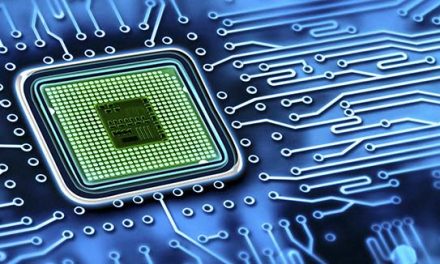Top-10 IC Growth Categories Target Emerging Applications in 2021
Memory, auto-specific, and embedded MPUs expected to outpace total IC market growth this year.
IC Insights recently released its 2021 edition of The McClean Report. The new analysis and forecast of the IC industry includes IC Insights’ ranking of IC product categories based on sales growth rate. The listing projects the market growth rate for each of the 33 IC product categories defined by the World Semiconductor Trade Statistics (WSTS) organization. The top-10 fastest growing IC segments forecast for this year are shown in Figure 1.
Each of the top-10 growing IC product categories is expected to see a double-digit increase in sales, but only the top-five segments are forecast to grow faster than the total IC market, which IC Insights projects will rise 12% this year.

Figure 1
DRAM and NAND flash are expected to be the two fastest-growing product segments in 2021 with 18% and 17% sales growth, respectively. Laying claim as the fastest growing IC product segment is familiar territory for the DRAM market. DRAM was also ranked as the fastest-growing IC segment in 2013, 2014, 2017, and 2018. On the other hand, due to its extreme cyclicality, DRAM has also been among the poorest performing categories. Collapsing prices resulted in the DRAM market falling -37% in 2019, ranking its growth rate last among the 33 IC product categories that year.
An increase in laptop, tablet, and server system sales boosted NAND revenue 24% in 2020 as the Covid 19 pandemic forced a transformation in the way consumers, schools, businesses, and governments communicated and carried on with their business. The transition to 5G technology within many of these same computing applications and smartphones is forecast to boost NAND revenue growth 17% in 2021.
Two automotive specific IC product categories, Automotive—Application-
With smartphone growth slowing in recent years, many system-on-chip MPU suppliers such as Qualcomm, Samsung, and MediaTek, have turned more of their attention to 64-bit embedded processors that integrate security features and machine-learning AI acceleration along with graphics and video capabilities for automated vehicles, self-flying drones, and IoT applications. A number of system trends are driving embedded processor growth including increased automation in vehicles, industrial equipment, and home products. Internet connections are also becoming pervasive in systems. In a growing number of applications, embedded processors are handling machine-learning AI capabilities for autonomous operations without the need of intervention or control by humans.
The 32-bit MCU market has expanded rapidly because of increasing demands for higher levels of precision in embedded systems and the rush to connect sensors along with nearly everything else to the Internet of Things. Many new 32-bit MCU designs support wireless connections and Internet protocol (IP) communications. In automobiles, 32-bit MCU demand is being driven by “intelligent” onboard systems and increases in real-time sensor functions that are serving a growing number of automated safety features like electronic stability control (ESC) and crash-avoidance capabilities. Meanwhile, a growing wave of 32-bit microcontrollers are being used in a wide range of consumer and industrial equipment applications as IC suppliers introduce powerful MCU designs that cost nearly the same as 8-bit and 16-bit devices in consumer electronics and other high-volume systems.












